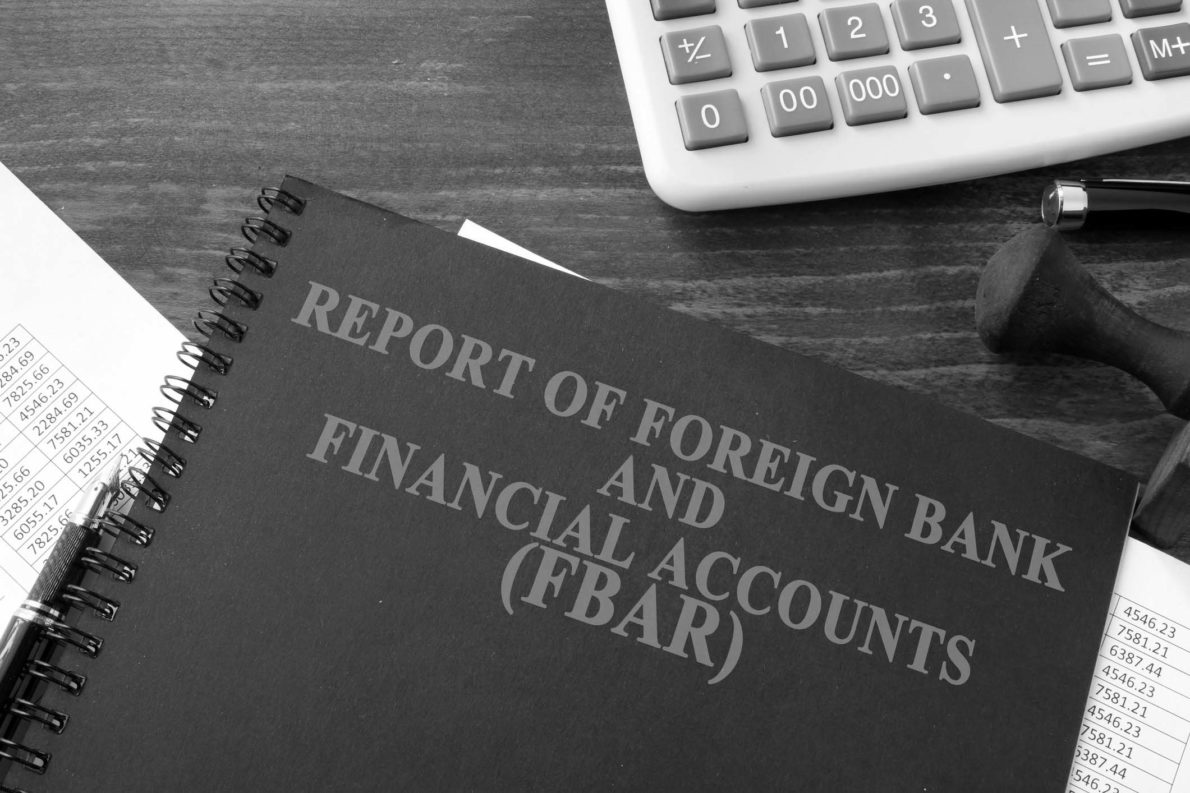Important Supreme Court Decision will Decide how Non-Willful FBAR Penalties are Calculated

This fall, the Supreme Court is set to hear an important case regarding the interpretation of the law that provides for penalties for failing to file an FBAR. The case will impact many taxpayers who have already been penalized and many more in the future.
In 1970, the Bank Secrecy Act was enacted to curb the use of foreign financial accounts by U.S. persons to evade taxes. The BSA requires a U.S. person who has a financial interest in one or more foreign financial accounts with an aggregate value greater than $10,000 to report such foreign accounts on FinCEN Form 114, commonly known as an “FBAR.”
While a U.S. person is not required to pay any tax in connection with the filing of an FBAR, a U.S. person will be subject to civil penalties for the failure to file a FBAR under 31 U.S.C. § 5321(a)(5). The amount of the penalty will depend on whether the violation was willful (i.e., a conscious violation of a known legal obligation) or non-willful (which includes negligent conduct). If the failure was willful, the maximum civil penalty is the greater of 50% of the account balance or $100,000. If the failure to file was non-willful, the law prescribed a $10,000 penalty per violation. The non-willful penalty is adjusted for inflation annually, and for 2022, the penalty amount is $14,489.
The IRS and taxpayers differ as to how the non-willful penalties should be calculated. The IRS takes the position that non-willful FBAR penalties are determined per account and not per unfiled FBAR, whereas taxpayers have taken the position that non-willful FBAR penalties should be applied on a per FBAR basis. When an FBAR reports many accounts, the gap is significant.
In United States v. Boyd, 991 F.3d 1077 (9th Cir. 2021), the defendant had failed to report 13 foreign accounts on an FBAR during a single year. The IRS argued that the taxpayer had committed 13 non-willful violations by failing to report all 13 accounts. The taxpayer argued that the maximum penalty should be $10,000 for a single non-willful violation. The Ninth Circuit held that the non-willful penalty applies on a per form basis and not based on the number of foreign accounts.
However, in United States v. Bittner, 19 F.4th 734 (5th Cir. 2021), the Fifth Circuit adopted the IRS’s position. In Bittner, the taxpayer failed to report 272 foreign accounts during the 2007-2011 tax years. The IRS assessed a $10,000 penalty per account, which resulted in a $2.72 million penalty. The taxpayer argued that the maximum penalty should be $50,000. The Fifth Circuit disagreed with the Ninth Circuit and held that the non-willful FBAR penalty applies on a per account basis.
Due to these conflicting holdings, the U.S. Supreme Court granted certiorari in the appeal of Bittner.
For the last several years, the IRS has calculated the non-willful penalty on a per account basis, except in the Ninth Circuit (generally, the West Coast).
If a taxpayer has recently made payment for non-willful FBAR penalties on a per-account basis, it is important to file a suit for refund within the applicable statute of limitations. If Bittner is decided against the IRS, a refund for the overpaid penalty will only be available if a timely suit had been filed.
For those who have unfiled FBARs, the IRS offers different programs, including the Voluntary Disclosure Program, the Streamlined Domestic and Foreign Offshore Filing Procedures, and the Delinquent FBAR Filing Procedures, to file the late FBARs and in some cases, mitigate the penalty exposure.
The overall goal of FBAR penalties is to encourage compliance. No matter how Bittner is decided this fall, we expect the IRS to not let up its scrutiny of FBAR and international tax issues. The time is now for noncompliant taxpayers to carefully consider how to return to compliance.
No aspect of this advertisement has been approved by the highest court in any state.
Results may vary depending on your particular facts and legal circumstances.
As the law continues to evolve on these matters, please note that this article is current as of date and time of publication and may not reflect subsequent developments. The content and interpretation of the issues addressed herein is subject to change. Cole Schotz P.C. disclaims any and all liability with respect to actions taken or not taken based on any or all of the contents of this publication to the fullest extent permitted by law. This is for general informational purposes and does not constitute legal advice or create an attorney-client relationship. Do not act or refrain from acting upon the information contained in this publication without obtaining legal, financial and tax advice. For further information, please do not hesitate to reach out to your firm contact or to any of the attorneys listed in this publication.
Join Our Mailing List
Stay up to date with the latest insights, events, and more



